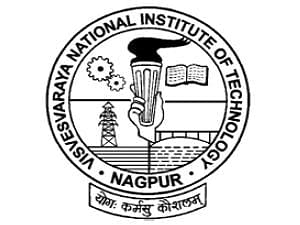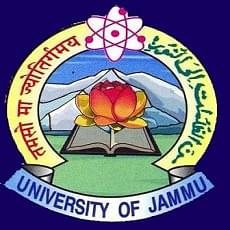Introduction about Master of Science in Robotics
(M.S. Robotics)
The Master of
Science in Robotics (M.S. Robotics) from the top affordable college in India
is an advanced graduate degree program
designed to provide students with in-depth knowledge, skills, and expertise in
the interdisciplinary field of robotics. This program integrates concepts from
computer science, electrical engineering, mechanical engineering, artificial
intelligence, and other related disciplines to prepare students for careers in
robotics research, development, and innovation.
Here's an
introduction to the Master of Science in Robotics program:
·
Interdisciplinary
Curriculum: M.S. Robotics
programs offer a comprehensive and interdisciplinary curriculum covering
various aspects of robotics, including:
Robot Mechanics and
Dynamics
Control Systems and
Robotics
Robot Perception
and Sensing
Robot Planning and
Navigation
Human-Robot
Interaction
Artificial
Intelligence and Machine Learning for Robotics
Robotics Software
Development
Autonomous Systems
Multi-Robot Systems
Bio-inspired
Robotics
·
Hands-on
Learning: M.S. Robotics
programs often emphasize practical, hands-on learning experiences through
laboratory sessions, projects, and research opportunities. Students have access
to state-of-the-art robotics laboratories and facilities where they can design,
build, program, and test robotic systems and prototypes.
·
Research
Opportunities: Many M.S.
Robotics programs offer research opportunities for students to work on
cutting-edge research projects in collaboration with faculty members and
industry partners. Students may have the opportunity to contribute to
advancements in robotics technology, publish research papers, and present their
work at conferences and symposiums.
·
Specialization
Tracks: Some M.S. Robotics
programs allow students to specialize in specific areas of robotics based on
their interests and career goals. Common specialization tracks may include:
Autonomous Systems
Human-Robot
Interaction
Medical Robotics
Robotic Vision and
Perception
Robotic
Manipulation and Grasping
Swarm Robotics
Aerial Robotics
Underwater Robotics
·
Industry
Collaboration: M.S.
Robotics programs often collaborate with industry partners to provide students
with real-world experience and industry insights. Students may participate in
internships, co-op programs, or industry-sponsored projects, gaining practical
skills and industry connections.
·
Capstone
Projects: Many M.S.
Robotics programs require students to complete a capstone project or thesis,
where they apply their knowledge and skills to solve a real-world robotics
problem or conduct original research in a specific area of robotics.
·
Career
Opportunities: Graduates of
M.S. Robotics programs are well-prepared for careers in various industries,
including robotics research and development, manufacturing, healthcare,
aerospace, defence, automotive, agriculture, and entertainment. They may work
as robotics engineers, researchers, consultants, project managers, or
entrepreneurs, among other roles.
Overall, the Master
of Science in Robotics program offers students a unique opportunity to gain
expertise in a rapidly growing and interdisciplinary field, preparing them for
exciting and rewarding careers at the forefront of robotics technology and innovation.
What is eligibility for Master of Science in
Robotics (M.S. Robotics) ?
The eligibility
criteria for Master of Science in Robotics (M.S. Robotics) at the best university in India programs can vary depending on the institution offering
the program and the country's educational system. However, there are some
common requirements typically observed across institutions. Here's a general
overview of the eligibility criteria for M.S. Robotics programs:
§ Bachelor's Degree: Candidates must have completed a bachelor's
degree or its equivalent from a recognized institution. The bachelor's degree
may be in a related field such as robotics, computer science, electrical
engineering, mechanical engineering, mathematics, physics, or a closely related
discipline.
§ Relevant Background: While not always mandatory, many M.S.
Robotics programs prefer candidates with a background in science, technology,
engineering, or mathematics (STEM) fields. Courses or coursework in areas such
as robotics, computer programming, mathematics, physics, and engineering
principles are beneficial.
§ Minimum GPA: Many universities and colleges require
candidates to have a minimum Grade Point Average (GPA) or equivalent academic
performance in their undergraduate studies. The specific GPA requirement may
vary depending on the institution and the competitiveness of the program.
§ Letters of Recommendation: Some M.S. Robotics programs require
candidates to submit letters of recommendation from academic or professional
references who can attest to the candidate's academic abilities, research
potential, and suitability for graduate studies in robotics.
§ Statement of Purpose: Candidates may be required to submit a
statement of purpose or personal statement outlining their academic background,
research interests, career goals, and reasons for pursuing graduate studies in
robotics.
§ Standardized Test Scores: Some institutions require candidates to
submit scores from standardized tests such as the GRE (Graduate Record
Examination) or equivalent exams. The specific test requirements and minimum
scores may vary depending on the institution and program.
§ Language Proficiency: For international students or in regions
where the language of instruction is not the native language, proficiency in
the language of instruction (usually English) may be required. This proficiency
is often demonstrated through standardized tests such as the TOEFL (Test of
English as a Foreign Language) or IELTS (International English Language Testing
System).
§ Work Experience (if applicable): Some M.S. Robotics programs may prefer
candidates with relevant work experience in robotics, engineering, computer
science, or related fields. Previous research experience, internships, or
industry experience can strengthen a candidate's application.
It's essential for
prospective students to carefully review the specific eligibility criteria and
admission requirements of the institutions and programs they are interested in
applying to. Additionally, admission processes, including deadlines, application
procedures, and required documents, may vary from one institution to another,
so it's crucial to stay informed and plan accordingly.
What is admission process for Master of Science in
Robotics (M.S. Robotics) ?
The admission
process for Master of Science in Robotics (M.S. Robotics) programs typically
involves several steps, which may vary slightly depending on the institution
and country. Here's a general overview of the admission process for M.S.
Robotics programs:
Research and
Exploration: Prospective
students should research M.S. Robotics programs offered by various universities
and colleges to identify the institutions that best align with their academic
interests, career goals, and personal preferences. This may involve reviewing
program curricula, faculty profiles, research areas, facilities, and student
resources.
Eligibility Check: Before applying, candidates should
carefully review the eligibility criteria for admission to M.S. Robotics
programs at their chosen institutions. This includes educational
qualifications, minimum GPA requirements, standardized test scores (if
applicable), language proficiency requirements, and any other specific
requirements set by the institution.
Application
Submission: Once eligible,
candidates must submit their applications for admission to the M.S. Robotics
program at their chosen institutions. The application process usually involves
completing an online or paper application form, providing personal and academic
information, and paying any required application fees. Additionally, candidates
must submit supporting documents such as transcripts, standardized test scores,
letters of recommendation, statement of purpose, and proof of language proficiency
(if applicable).
Admission
Evaluation: After receiving
applications, the institution's admission committee evaluates each candidate's
academic qualifications, standardized test scores (if required), supporting
documents, and letters of recommendation. They consider factors such as
academic performance, research experience, industry experience (if applicable),
statement of purpose, and language proficiency.
Interviews (if
applicable): Some
institutions may require candidates to participate in interviews as part of the
admission process. Interviews provide an opportunity for candidates to discuss
their academic background, research interests, career goals, and suitability
for the M.S. Robotics program.
Admission Decision: Based on the evaluation of applications and
interviews (if applicable), the admission committee makes admission decisions
for each candidate. Successful candidates receive admission offers from the
institution, indicating their acceptance into the M.S. Robotics program. The
admission offer typically includes details such as the program start date,
tuition fees, enrollment deadlines, and any conditions of acceptance that must
be fulfilled.
Acceptance and
Enrollment: Candidates who
receive admission offers must formally accept the offer by the specified
deadline and complete any required enrollment procedures. This may involve
paying a deposit or enrollment fee, submitting additional documents (if
required), and registering for courses for their first semester or term in the
M.S. Robotics program.
Orientation and
Registration: Newly
admitted students participate in orientation sessions conducted by the
institution to familiarize themselves with campus life, academic policies,
support services, and other essential information. They also register for
courses and meet with academic advisors to plan their course of study.
Commencement of
Classes: The admission
process culminates with the commencement of classes, marking the beginning of
the students' academic journey in the Master of Science in Robotics program.
Students attend lectures, seminars, laboratory sessions, and research
activities, engaging in advanced study and exploration of robotics topics.
It's important for
prospective students to carefully follow the admission process timeline, adhere
to deadlines, and ensure that all application requirements are met to maximize
their chances of admission to their desired M.S. Robotics programs. Additionally,
seeking guidance from academic advisors, admissions counselors, and current
students can provide valuable insights and support throughout the admission
process.
What is syllabus of Master of Science in Robotics
(M.S. Robotics)?
The syllabus for
Master of Science in Robotics (M.S. Robotics) programs can vary significantly
depending on the institution offering the program, the specialization chosen by
the student, and the country's educational system. However, there are common core
subjects and areas of study typically included in most M.S. Robotics programs.
Here's a general overview of the syllabus for M.S. Robotics programs:
![]() Foundation Courses:
Foundation Courses:
Mathematics for
Robotics: Linear algebra, calculus, probability, and statistics relevant to
robotics applications.
Fundamentals of
Robotics: Introduction to robotics principles, robot kinematics, dynamics, and
control.
Computer
Programming: Programming languages such as C++, Python, or MATLAB for robotics
software development.
![]() Robotics Core Courses:
Robotics Core Courses:
Robot Perception
and Sensing: Techniques for robot perception, including computer vision, depth
sensing, and sensor fusion.
Robot Planning and
Control: Methods for robot motion planning, trajectory generation, and control
algorithms.
Robot Manipulation
and Grasping: Techniques for robotic manipulation, object grasping, and
manipulation planning.
Human-Robot
Interaction: Principles of human-robot interaction, robot behavior, and social
robotics.
Autonomous Systems:
Concepts and algorithms for autonomous robot navigation, localization, and
mapping.
Multi-Robot
Systems: Coordination and cooperation among multiple robots, swarm robotics,
and distributed control.
Bio-inspired
Robotics: Inspiration from biological systems for robotics design and control,
biomimicry.
![]() Elective Courses:
Elective Courses:
M.S. Robotics
programs often offer a range of elective courses that allow students to
specialize in specific areas of robotics based on their interests and career
goals. Elective courses may cover topics such as:
Aerial Robotics
Underwater Robotics
Medical Robotics
Field Robotics
Soft Robotics
Robotics in
Manufacturing
Robotics Simulation
and Modeling
Robot Learning and
Adaptation
Robot Ethics and
Policy
![]() Research Seminars and Projects:
Research Seminars and Projects:
M.S. Robotics
programs typically include research seminars and projects where students work
on hands-on projects or research initiatives under the supervision of faculty
members. These projects may involve designing, building, programming, and
testing robotic systems, as well as conducting original research in
robotics-related areas.
![]() Thesis or Capstone Project:
Thesis or Capstone Project:
Many M.S. Robotics
programs require students to complete a thesis or capstone project as a
culmination of their graduate studies. This project allows students to apply
their knowledge and skills to solve a real-world robotics problem or conduct
original research in a specific area of robotics.
![]() Professional Development and Seminar
Series:
Professional Development and Seminar
Series:
Some M.S. Robotics
programs include professional development courses or seminar series focused on
career skills, academic writing, presentation skills, and ethics in robotics
research and practice.
It's important to
note that the specific syllabus and course offerings may vary from one
institution to another, and students should refer to the official website or
academic catalog of the respective university or college for detailed
information on the M.S. Robotics program syllabus. Additionally, M.S. Robotics
programs may undergo periodic updates and revisions to align with advancements
in robotics technology, industry requirements, and educational standards.
What are scopes after Master of Science in Robotics
(M.S. Robotics) ?
Graduates of Master
of Science in Robotics (M.S. Robotics) at the best college in India programs
have a wide range of career opportunities across various industries. The
interdisciplinary nature of robotics equips graduates with valuable skills and
expertise that are highly sought after in today's technology-driven world. Here
are some common scopes and career paths for M.S. Robotics graduates:
Ø Robotics Researcher: Graduates can pursue careers as robotics
researchers, working in academic institutions, research laboratories, or
private sector R&D centers. They may conduct cutting-edge research in areas
such as robot perception, motion planning, artificial intelligence, human-robot
interaction, and autonomous systems.
Ø Robotics Engineer: M.S. Robotics graduates can work as
robotics engineers, designing, developing, and implementing robotic systems and
solutions for various applications and industries. They may specialize in areas
such as industrial robotics, medical robotics, autonomous vehicles, service
robots, or agricultural robotics.
Ø Autonomous Systems Developer: Graduates can specialize in developing
autonomous systems, including autonomous drones, self-driving cars, unmanned
aerial vehicles (UAVs), and autonomous mobile robots. They may work in
industries such as transportation, logistics, agriculture, defense, and
surveillance.
Ø Robotics Software Developer: Graduates with expertise in robotics
software development can work as robotics software engineers, designing and
implementing software systems for controlling and operating robots. They may
develop algorithms for robot perception, navigation, manipulation, and
decision-making.
Ø Robotics Consultant: M.S. Robotics graduates can work as
robotics consultants, providing expert advice, solutions, and support to
businesses and organizations on robotics-related projects and initiatives. They
may assist companies in adopting robotics technologies, optimizing workflows,
and solving complex robotics challenges.
Ø Robotics Project Manager: Graduates with strong project management
skills can work as robotics project managers, overseeing the planning,
execution, and delivery of robotics projects within organizations. They may
manage multidisciplinary teams of engineers, researchers, and technicians to
ensure project success.
Ø Entrepreneurship: M.S. Robotics graduates with
entrepreneurial ambitions can start their own robotics-related businesses, such
as robotics startups, consulting firms, or technology companies. They may
develop innovative robotic products, solutions, or services to address market
needs and opportunities.
Ø Academia and Teaching: Graduates interested in academia can pursue
careers as university professors, lecturers, or researchers, teaching robotics
courses and conducting research in academic institutions. They may contribute
to advancing the field of robotics through teaching, mentorship, and scholarly
publications.
Ø Industry Applications: M.S. Robotics graduates can work in various
industries that utilize robotics technologies, including manufacturing,
healthcare, aerospace, defense, agriculture, logistics, entertainment, and
consumer electronics. They may develop robotic systems for tasks such as
assembly, inspection, surgery, exploration, surveillance, and entertainment.
Ø Overall, the scope after Master of Science
in Robotics (M.S. Robotics) is diverse and dynamic, offering graduates
opportunities to make significant contributions to the advancement of robotics
technology, drive innovation across industries, and build rewarding careers in
a rapidly evolving field.












